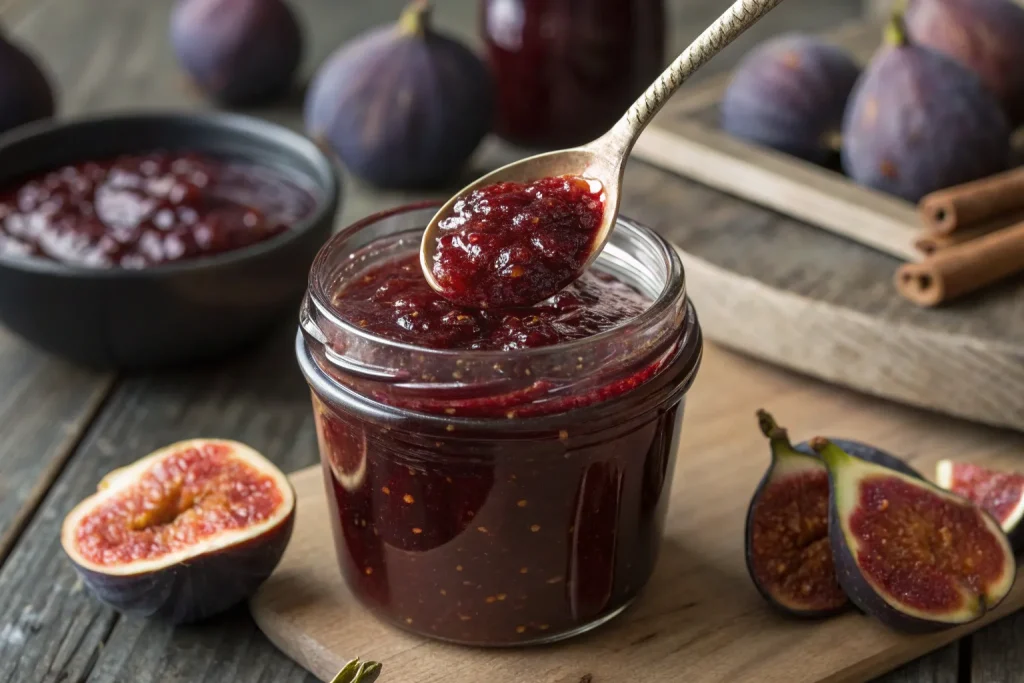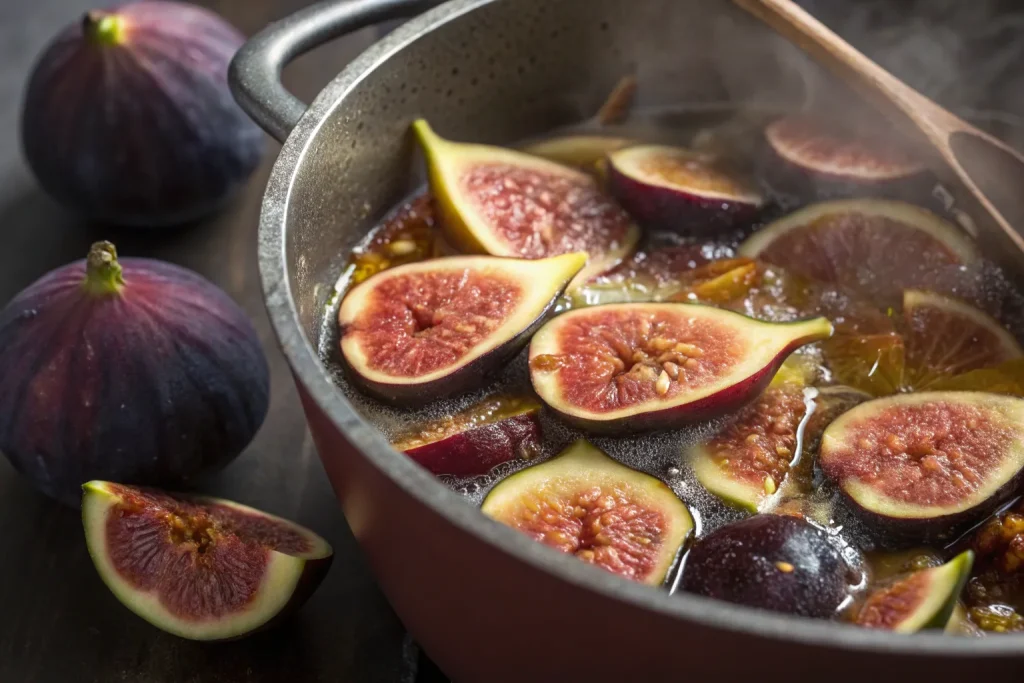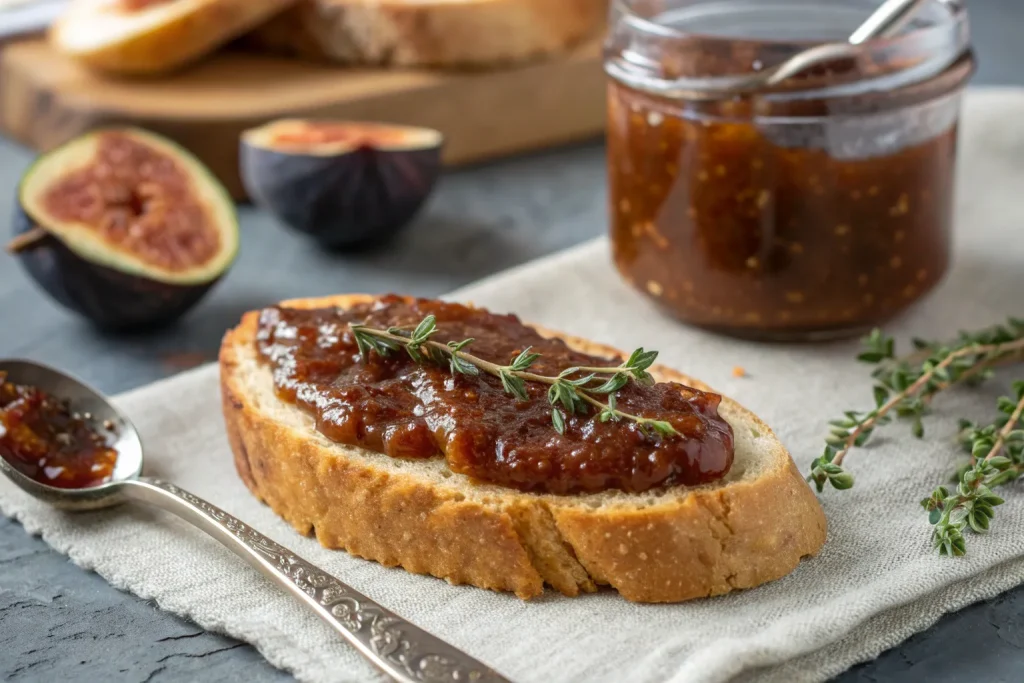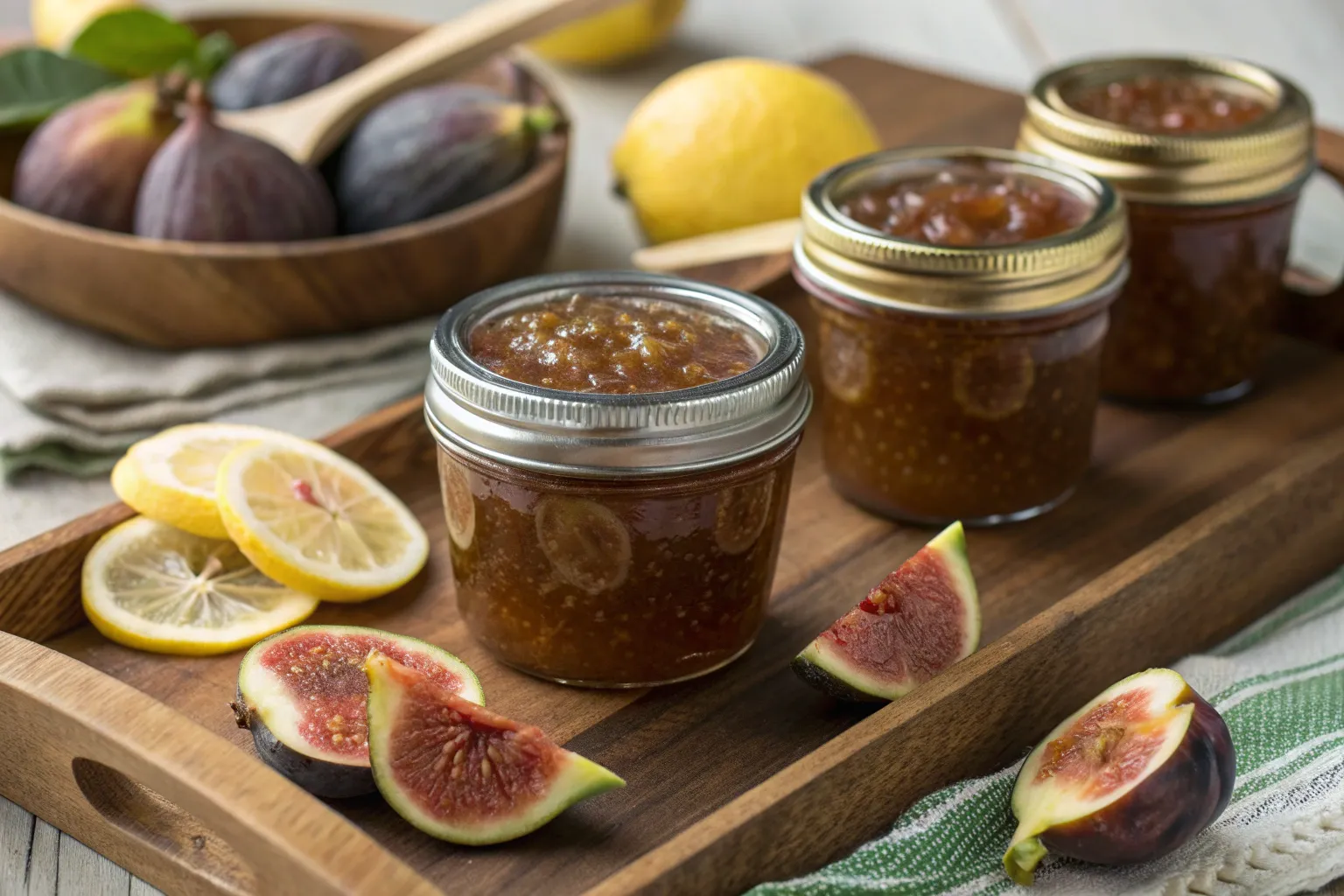Homemade Fig Jam – Fresh and Easy for Canning

There’s nothing quite like the sweet, earthy taste of homemade fig jam. Packed with natural flavor and simple ingredients, this recipe is perfect for spreading on toast, pairing with cheese, or preserving for later. Whether you’re new to canning or a seasoned pro, making fig jam at home is rewarding, delicious, and surprisingly easy.
Why You’ll Love This Recipe
Homemade fig jam is more than just a spread, it’s a versatile addition to your pantry. You’ll love this recipe because it uses fresh figs, requires minimal ingredients, and offers natural sweetness without artificial additives. Plus, it’s freezer-friendly and perfect for canning, meaning you can enjoy summer figs all year round.
Ingredients You’ll Need
Figs are the star of this recipe, but they shine even brighter with a little help. A touch of sugar enhances their natural sweetness, while lemon juice adds brightness and balance. These pantry staples combine to create a jam that’s flavorful, safe for canning, and endlessly enjoyable.
- 2 pounds fresh ripe figs (washed, stemmed, and chopped)
- 2 cups granulated sugar (adjust to taste)
- 2 tablespoons fresh lemon juice
- ½ cup water
Optional add-ins:
- 1 teaspoon vanilla extract
- ½ teaspoon ground cinnamon
- ½ teaspoon grated fresh ginger
Condensed Grocery Checklist
Sometimes simplicity is best. With just a handful of ingredients, this jam is easy to shop for and quick to make. Having everything ready ensures a smooth cooking process from start to finish.
- Fresh figs
- Granulated sugar
- Lemon juice
- Water
Step-by-Step Instructions

Even if you’ve never made jam before, you’ll find this method easy to follow. Each step is designed to build flavor and texture, resulting in a spread that’s smooth, glossy, and perfectly thickened.
- Prep the figs – Wash, stem, and chop ripe figs into small pieces.
- Cook down – In a large pot, combine figs, sugar, and lemon juice. Let them simmer until the fruit softens.
- Mash and thicken – Gently mash figs and continue cooking until the jam reaches a thick consistency.
- Test for doneness – Place a small spoonful on a cold plate; if it gels, it’s ready.
- Jar and seal – Spoon hot jam into sterilized jars and seal properly for canning.
Ingredient Swaps & Variations
Flexibility makes this recipe even better. If you prefer less sugar, want a hint of spice, or enjoy unique flavor twists, there are plenty of ways to make this fig jam your own.
- Sweetness level – Adjust sugar depending on the ripeness of your figs.
- Flavor twist – Add a splash of vanilla, cinnamon, or balsamic vinegar for depth.
- Low-sugar option – Use honey or maple syrup for natural sweetness.
Serving Suggestions

This jam isn’t just for toast. From sweet breakfasts to savory dinners, it pairs beautifully with a variety of foods. Its versatility makes it a must-have in your kitchen.
- Spread over buttered toast or fresh biscuits.
- Pair with cheese and crackers for a savory-sweet appetizer.
- Swirl into yogurt or oatmeal for a quick breakfast upgrade.
- Use as a glaze for chicken or pork for a gourmet touch.
Storing Tips
Fig jam is a recipe that keeps on giving. Whether you refrigerate, freeze, or can it, proper storage means you can enjoy its flavor long after fig season ends.
- Store in the fridge: Keep in an airtight jar for up to 3 weeks.
- Store in the freezer: Use freezer-safe containers and leave headspace; lasts up to 3 months.
- Canning method: Properly sterilized jars sealed in a water bath last up to 12 months in a cool, dark place.
- Always refrigerate after opening and use within 1–2 weeks.
Common Mistakes to Avoid
A few small errors can affect the outcome of your jam. By knowing what to watch for like overcooking or using underripe figs, you can avoid disappointment and ensure perfect results every time.
- Using underripe figs – They won’t have enough natural sweetness.
- Skipping lemon juice – It’s crucial for balancing flavor and ensuring safe canning.
- Overcooking – This can make the jam too thick or caramelized.
- Not sterilizing jars – Proper sterilization is key for safe preservation.
Chef’s Special Tips
The beauty of homemade recipes is the ability to add personal touches. A little zest, spice, or creative pairing can take your fig jam from delicious to unforgettable.
- Add a teaspoon of orange or lemon zest for a bright citrus kick.
- Stir in a splash of balsamic vinegar at the end for a gourmet twist.
- For a smoother jam, use an immersion blender after cooking.
- Test doneness with the cold plate method: if it wrinkles when pushed, it’s ready.
- Gift jars of this jam wrapped with ribbon for a charming homemade present.
Conclusion
Homemade fig jam is a simple yet luxurious recipe that brings out the best of fresh figs. With minimal ingredients and easy steps, you can create a sweet, versatile spread that’s perfect for everyday meals or special occasions. Whether enjoyed fresh or canned for later, this jam is a pantry must-have you’ll love making again and again.

